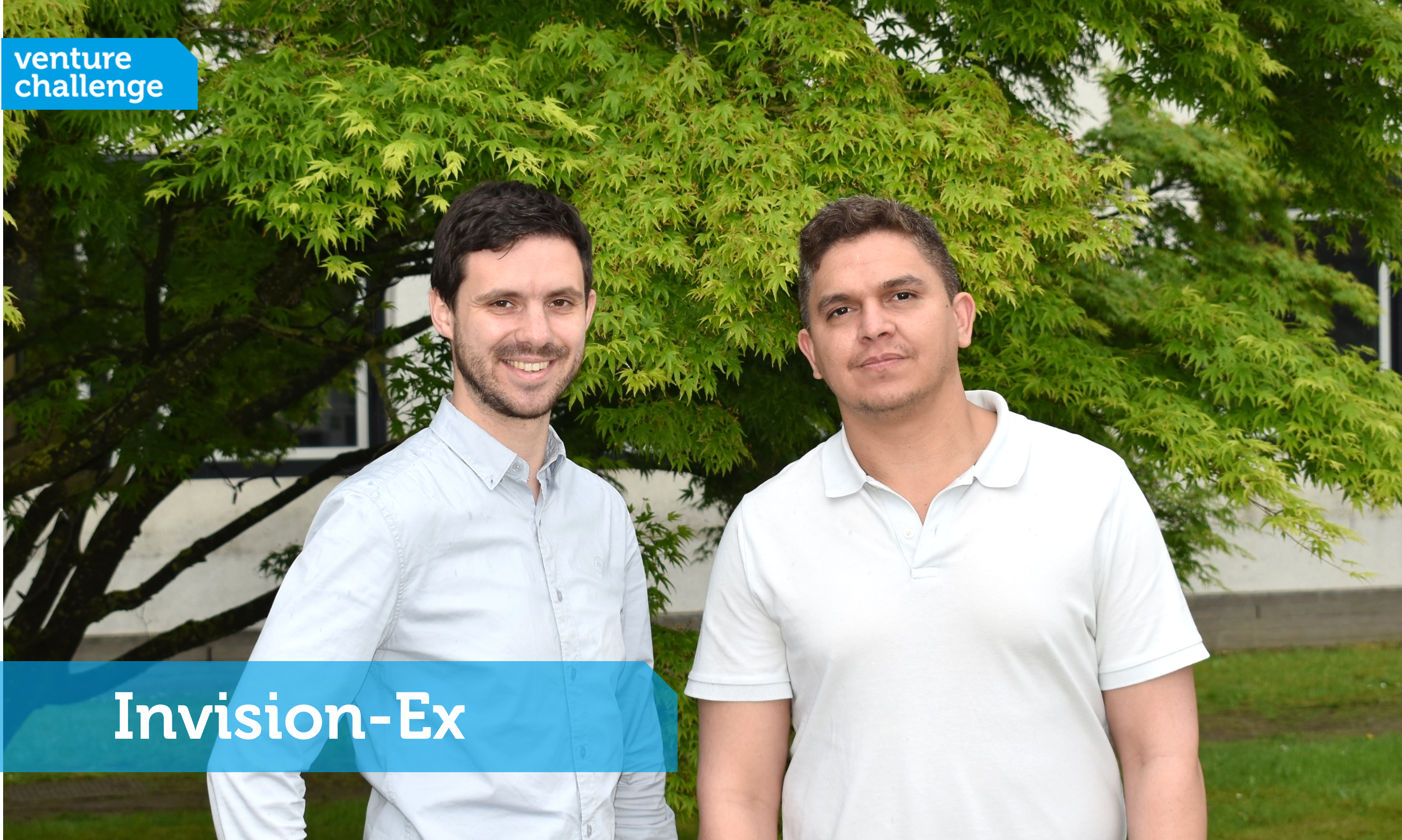These are the Venture Challenge Spring 2023 teams!
Six teams will start the Venture Challenge. Between 10 May and 29 June these starting lifesciences entrepreneurs will learn everything there is to know about setting up and pitching a businessplan. By participating in the Venture Challenge, these entrepreneurs will get a tremendous boost to get their idea to the next level. Not only will they receive one-on-one coaching, but they will get the opportunity to pitch to investors and connect with seasoned entrepreneurs.
Spatium Medical B.V., the next generation medical insufflator.
Spatium Medical has been founded to provide surgeons with next generation technologies that improve the lives of patients worldwide. During laparoscopy surgery, insufflation (filling the abdomen with CO2 gas) is used to create workspace for the surgeon. However, current insufflation methods often use too high and variable pressure, increasing the risk of complications during and after surgery. Spatium Medical is aspiring to bring responsive, ventilation-adjusted and patient-personalised insufflation to the field of laparoscopy. Developed by clinicians and researchers at Erasmus MC in Rotterdam, The Netherlands and the TechRes Lab in Milan, Italy, these innovative technologies enable us to improve patient recovery and surgical outcome in laparoscopic surgeries.
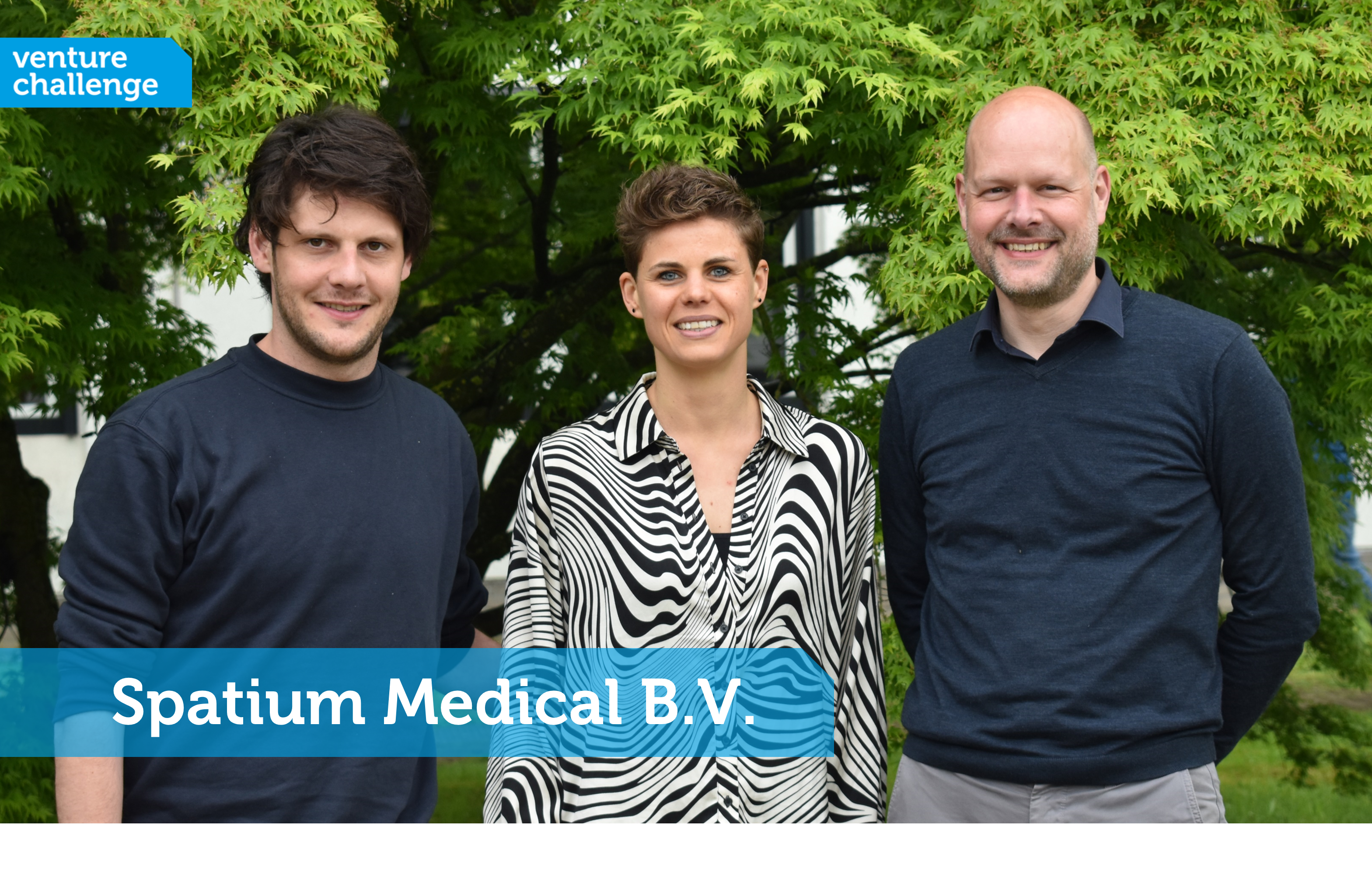
ExCulture B.V.
ExCulture is a research and development biotechnology startup that was founded in 2022 by Aisling Foley and Ilaria Poledri based on a novel, patented platform technology developed at the Environmental Biotechnology Faculty of TU Delft. Due to the capacity of this bioprocess to recover high-value scarce biomedical compounds of interest from more abundant sources, we believe that it holds the potential to transform the production method of life-saving pharmaceuticals. Our current focus lies on heparin-like compounds. Heparin is the world’s most commonly used anticoagulant (blood thinner), administered to 1 in 3 hospitalized patients for cardiovascular diseases. Despite attempts to produce heparin synthetically, due to its complex, heterogeneous structure heparin is still derived as a byproduct of pig intestines. This, therefore, represents a supply chain that faces many safety, security, and stability risks including; epidemics, contamination crises, and the fact that more than 80 % of global heparin supply comes from China. ExCulture’s mission is to future-proof the heparin supply chain in a bio-based animal-free approach.
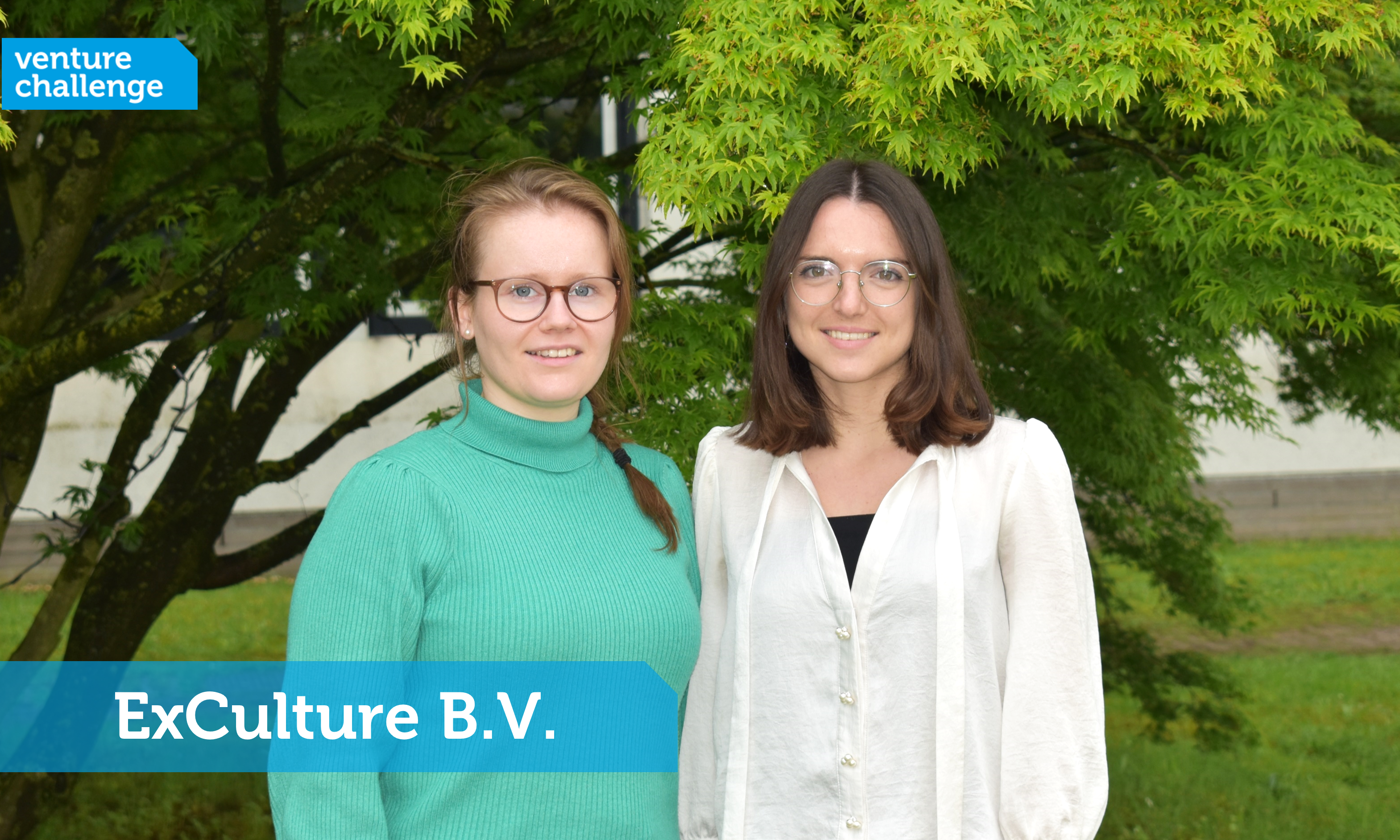
Pneoo Tx
Chronic obstructive lung disease (COPD) is the third leading cause of death in the world. Currently, no cure is available for patients suffering from this disease. Pneoo Tx is developing novel drugs for the restoration of cells that are lacking in the lungs of patients suffering from COPD, as the lack of these cells is a major cause of the symptoms and suffering in this disease.
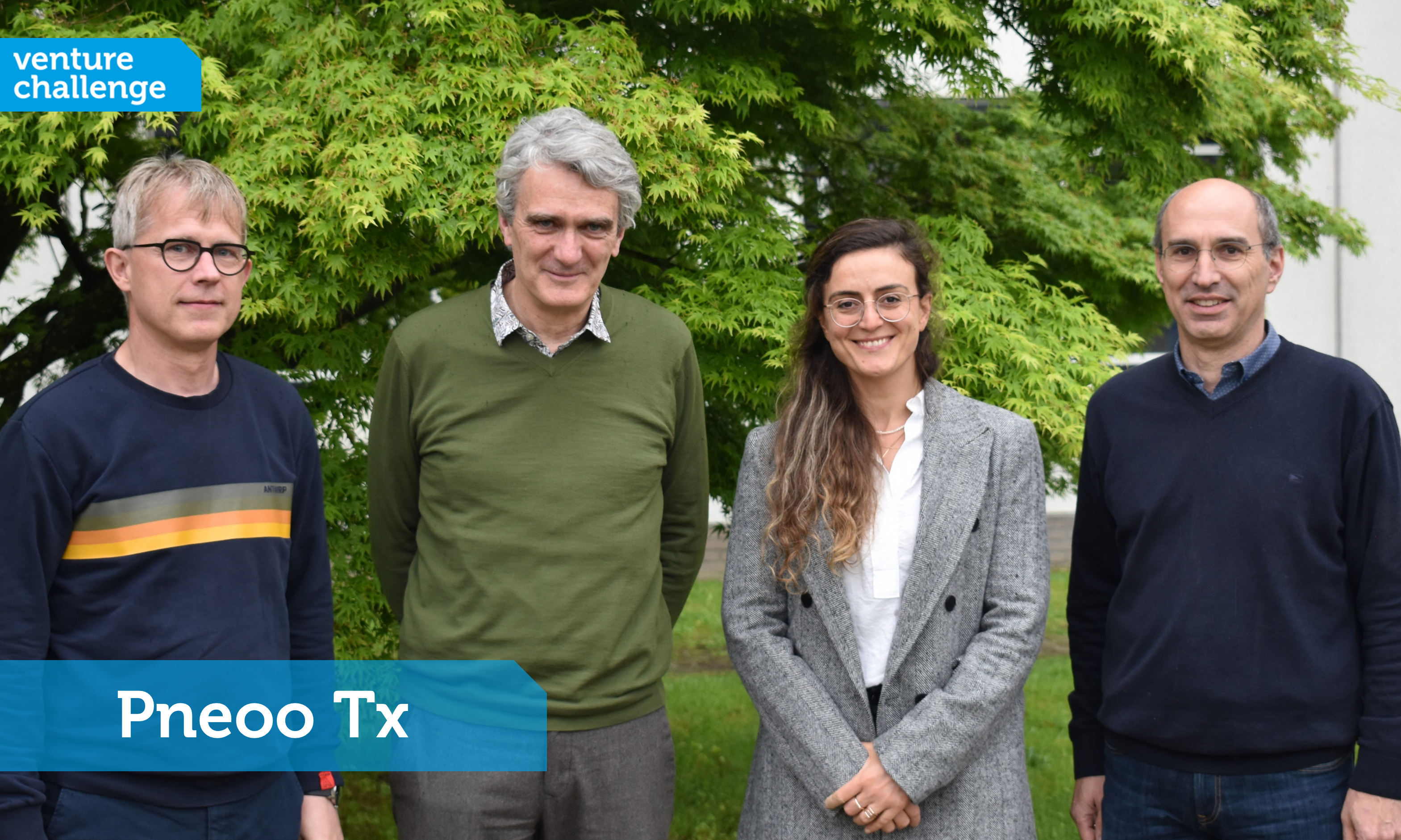
Saturn, Patient-specific pessary for patients with prolapse and incontinence.
More than half of women over the age of 40 develop a prolapse of the bladder, uterus and/or bowel. The most common symptoms of pelvic organ prolapse (POP) are a feeling of a bulge, pelvic pressure, low backache, painful intercourse, urinary problems and constipation. These symptoms of POP have a great negative impact on women’s Quality of life. Treatment options include pessary treatment or surgery. 48% of women choose primarily for surgery, but surgery has a 30% recurrence risk. The other half of patients starts treatment with a pessary. 50% of women discontinue pessary treatment due to unsuccessful fitting, insufficient effect on symptoms or side effects. Furthermore, only a small part of women can remove/clean and insert the pessary by self-management. Most women find it painful to remove the pessary. To overcome the limitations of current pessary therapy, the team developed a patient specific pessary (PSP) which can be adapted to the anatomy of each woman. This design provides better management of symptoms, leads to fewer treatment failures, causes fewer complications and is suitable for self-management.
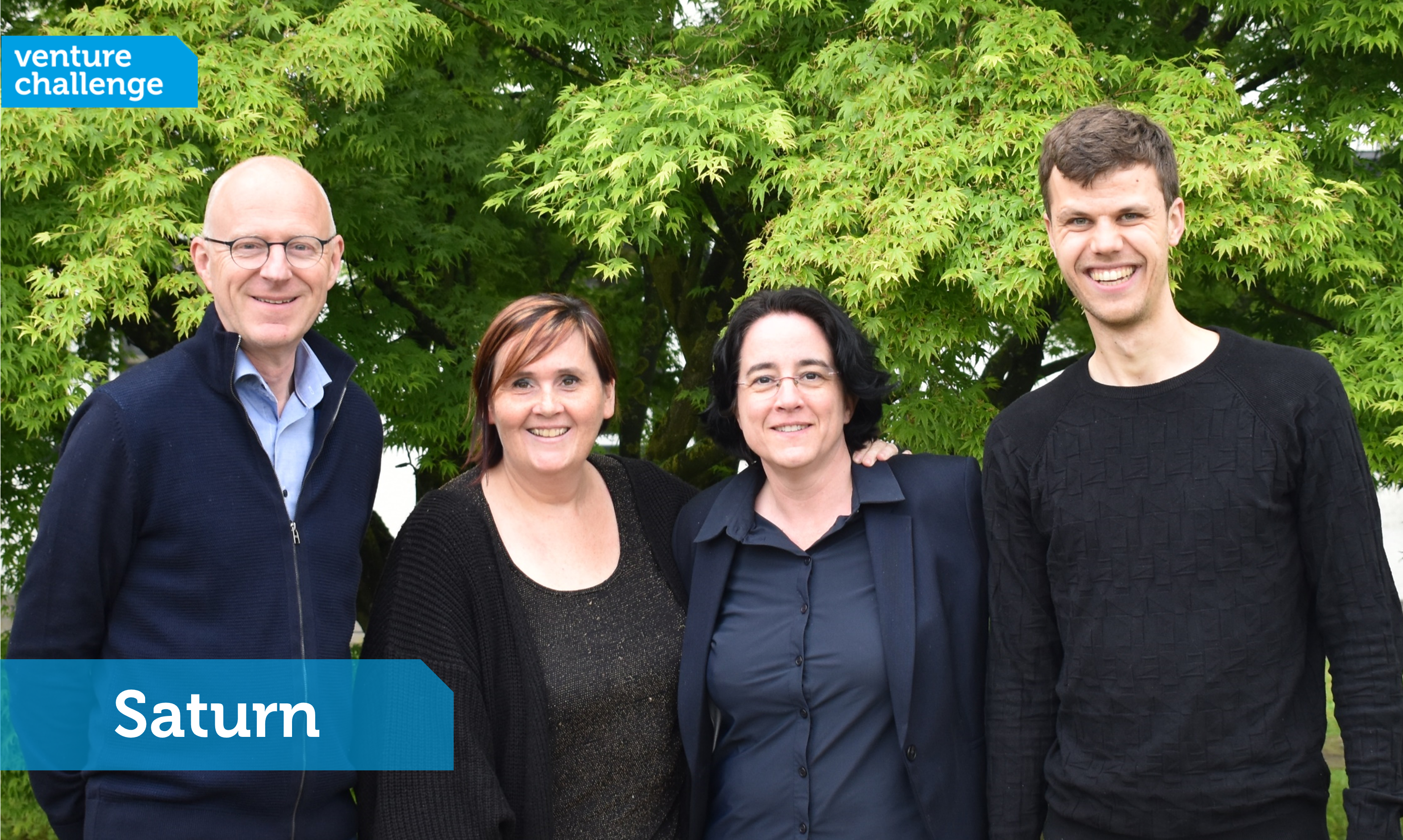
Sencilia B.V.
Intravenous (IV) infusion therapy is a commonly administered procedure in hospitals worldwide. However, IV infusions are notoriously risky, and up to 67% of all infusions are known to have erroneous flow rates, resulting in preventable medication errors that cause a healthcare burden of €54 mn in the Netherlands alone. Sencilia and the University of Groningen have developed a unique fish-inspired sensor to continuously monitor the IV flow rate in real time. The solution is distinguished by its small size and high sensitivity, and promises to improve patient safety, reduce nurse workload, and reduce costs arising out of preventable medication errors.
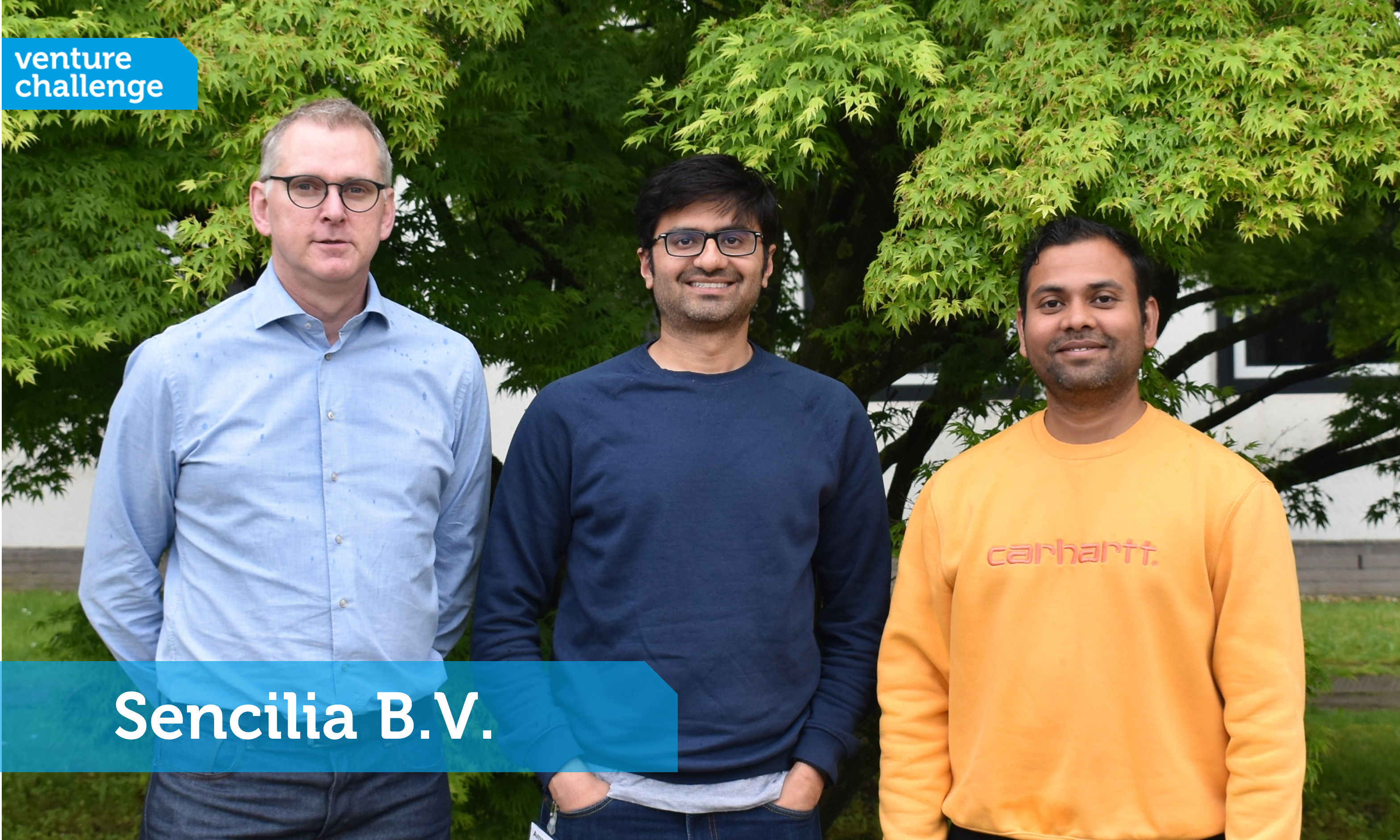
Invision‐Ex, Lab grown corneas to restore youthful vision for 1 billion people worldwide.
Presbyopia is a common age‐related condition that affects the global population. A person’s ability to focus on close objects is affected due to a loss of elasticity in the lens of the eye with age. Decellularized and/or rejected corneas for transplantation have been used to treat presbyopia allowing patients to live spectacle‐free and without having to undergo invasive surgery. However, these corneas rely on an already extensive waiting list of human donors for supply. Lab‐grown corneas have the potential to be used as an alternative and could be useful for other conditions that result in corneal damage or loss of transparency that do not necessitate donor tissue. We have developed a lab‐grown cornea (ex‐vivo) by extracting stromal cells from human corneas, harvesting, and culturing them in a 3D microenvironment that mimics corneal tissue. Our technology can provide an ethical and biocompatible path to correct one of the most common vision problems faced by our aging population.
